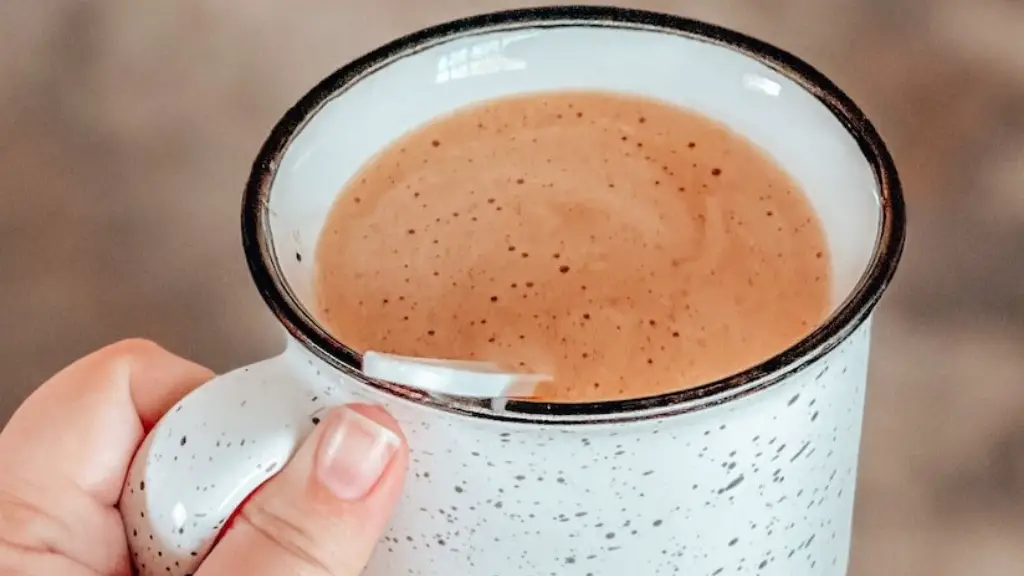Coffee has been a staple of the morning routine for many people for centuries. It can give you that much-needed boost to start the day or keep you going throughout the day. But, if you’re drinking too much coffee, it may be time to consider whether or not you should stop drinking coffee.
There are many potential risks associated with excessive caffeine consumption, such as insomnia and even addiction. In addition, there are potential health benefits associated with decreasing your coffee intake. From reducing your risk of heart disease to improving your mood, quitting coffee could have some serious positive consequences in your life.
It’s important to remember that everyone’s body is different and what works for one person may not work for another. If you’re considering quitting coffee, it is important to do your research and talk to a doctor about what is best for your body. It can take some trial and error, but if you’re willing to put in the effort it can be a rewarding experience.
Alternatives to Coffee
If you’re looking to cut down on your coffee intake, there are a number of healthful alternatives that can provide you with the energy and alertness you need. These include herbal teas such as green tea, hibiscus tea, or rooibos tea which contain caffeine and antioxidants. You can also opt for yerba mate, a South American tea that has a higher caffeine content than coffee. For an even more energizing drink, consider matcha tea, which is made from finely ground green tea leaves and contains both caffeine and the amino acid L-theanine. Other options include guayusa, an Amazonian leaf that has twice the amount of caffeine as coffee, or chai tea which is rich in antioxidants. For something totally different, try chicory root coffee – it’s caffeine-free but has a similar flavor to regular coffee.
No matter what alternative you choose, it’s important to remember that moderation is key. While these beverages can be healthier than drinking large amounts of coffee, too much of anything can still cause health problems.
Benefits of Quitting Caffeine
Giving up caffeine can provide many benefits to those who choose to do so. Caffeine is a powerful stimulant and its effects on the body can be far-reaching. It can cause anxiety, jitteriness, dehydration, and restlessness. Quitting caffeine can reduce or eliminate these symptoms and help you feel healthier overall.
In addition to physical benefits, quitting caffeine can also have positive mental effects. It can help you focus more effectively during the day, improve your quality of sleep at night, and reduce stress levels.
Moreover, giving up caffeine may also have long-term health benefits. Caffeine consumption has been linked to an increased risk of heart disease and stroke. By eliminating it from your diet, you may be able to lower your risk for these conditions. Additionally, quitting caffeine may help you lose weight by curbing cravings for unhealthy snacks throughout the day.
Quitting caffeine is not always easy; however it can be done with some preparation and perseverance. Start by gradually reducing your intake over time until you reach a comfortable level or eliminate it completely if desired. With the right plan in place, you can enjoy all the benefits that come with quitting caffeine.
Effects of Too Much Caffeine
Caffeine is the most widely consumed psychoactive drug in the world, and many people rely on it to stay alert and energized throughout the day. While moderate caffeine consumption can provide benefits such as improved focus, increased energy, and improved mood, consuming too much caffeine can produce a range of negative effects. Excessive caffeine can cause insomnia, restlessness, irritability, nervousness, increased heart rate and blood pressure, tremors, headaches, and digestive issues. To avoid these issues, adults should limit their daily caffeine intake to no more than 400 milligrams per day.
Caffeine tolerance varies from person to person. Some people may be able to consume more than 400 milligrams of caffeine without any negative effects while others may experience symptoms after only one or two cups of coffee. If you are experiencing any of the symptoms mentioned above or if you find yourself relying on coffee throughout the day to stay awake and alert you should consider reducing your daily caffeine intake.
In addition to reducing your overall caffeine intake it is also important to pay attention to when you consume it. Most experts recommend avoiding coffee after 2 PM as this can make it harder for you to fall asleep at night. Keep in mind that energy drinks and other caffeinated beverages such as tea also contain high levels of caffeine so it’s important to factor them into your daily total as well.
Caffeine can be a great way to get a boost of energy during the day but it’s important not to overdo it. If you think that you may be drinking too much coffee or experiencing negative side effects from your current level of consumption consider cutting back or eliminating it from your diet altogether.
Reasons to Cut Back on Caffeine Intake
Caffeine is a commonly used stimulant found in coffee, tea, soft drinks, and other foods. While it can be beneficial for providing an energy boost, it can also have adverse effects on your health if consumed in large quantities. Consuming too much caffeine can lead to restlessness, anxiety, insomnia, and even heart palpitations. Additionally, drinking too much coffee can cause dehydration and interfere with important vitamins and minerals that your body needs.
It’s important to consider cutting back on caffeine intake if you are feeling any of the above-mentioned symptoms or if you have been consuming more than 400-500 mg of caffeine per day. You should also pay attention to the amount of caffeine in all the foods and beverages you consume during the day. To ensure that you don’t go overboard on your caffeine intake, try limiting yourself to one cup of coffee or tea a day or less. Additionally, try replacing caffeinated beverages with decaf versions or herbal teas for a healthier alternative.
Cutting back on caffeine intake can help improve your overall health and wellbeing in the long run. It will help you stay hydrated and provide your body with essential vitamins and minerals that it needs for optimal functioning. So take a step back from those cups of coffee and switch over to decaf versions or herbal teas!
Is it Hard to Quit Caffeine?
Quitting caffeine can be a difficult process, as many people rely on it to get through their day. Caffeine has been shown to increase alertness and improve mental focus, which makes it popular for those who need an extra boost of energy. However, the withdrawal symptoms associated with quitting caffeine can be uncomfortable and can include headaches, fatigue, irritability, and difficulty concentrating.
The best way to quit caffeine is to gradually reduce your intake over time. This will allow your body to adjust more easily and will help minimize the side effects of withdrawal. It’s also important to find alternative sources of energy that are healthier than caffeine such as exercise or a balanced diet.
It’s important to remember that quitting caffeine is not an easy process and may require some time and effort. However, once you have successfully overcome your addiction you will likely find that you have more energy without relying on coffee or other caffeinated beverages. With a little patience and dedication, quitting caffeine can be a great way to improve your overall health and well-being!
Reducing Caffeine Intake
Cutting back on caffeine intake can be beneficial to your health and wellbeing. It is important to remember that reducing caffeine intake does not necessarily mean you have to stop drinking coffee. Instead, there are many ways to reduce your caffeine consumption without sacrificing the taste of your favorite beverages.
One way to reduce your caffeine intake is to switch from regular or decaf coffee to tea. Tea contains much less caffeine than coffee, and there are many varieties of herbal tea that contain no caffeine at all. Additionally, you can try cutting back on the amount of coffee or tea you drink each day. Try brewing a weaker cup, diluting it with more water, or drinking smaller amounts more frequently throughout the day.
Another option is to switch from regular caffeinated drinks such as sodas and energy drinks, to decaffeinated versions. You can also reduce your sugar intake by switching from sugary drinks such as lattes and cappuccinos to black coffee or tea. Finally, try substituting herbal infusions, such as chamomile tea or rooibos tea for caffeinated drinks.
Final Words
Whether or not you should stop drinking coffee is a personal decision based on your individual needs and lifestyle. While drinking coffee may bring some health benefits, it can also be detrimental to your overall health if consumed in excess. It’s important to consider all the potential pros and cons before making any decisions about your caffeine intake. When it comes to coffee, moderation should be your top priority.
Ultimately, the choice is yours. If you feel that you are consuming too much caffeine or experiencing negative side effects from caffeine, then consider reducing your intake or replacing coffee with other sources of energy. Whatever decision you make, remember to always consult with your doctor if you have any questions or concerns about how caffeine may be affecting your health.





